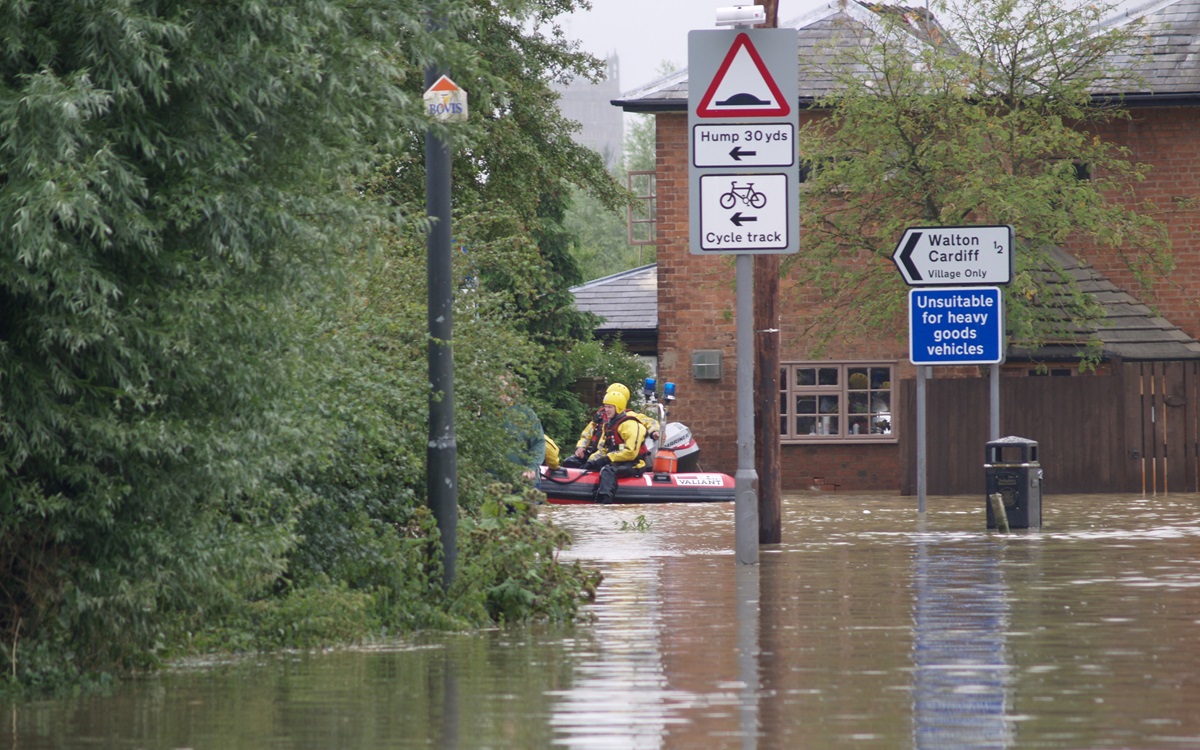This webinar will outline findings and recommendations from two research projects on how police and partner agencies are preparing for, responding to, and adapting to climate change.
It is widely accepted that human-induced climate change poses ‘severe, interconnected and irreversible risks’ to ecosystems, biodiversity, and human societies. The increasing frequency and severity of extreme weather events have had significant impacts on local communities, infrastructure, and police and emergency responders.
This webinar will present research findings from different international jurisdictions and consider ways in which police and partner agencies are preparing for, responding to, and adapting to the pervasive effects of the climate crisis. By drawing on data from different geographic contexts, the webinar aims to draw attention to the wide-ranging structural, societal, and individual climate vulnerabilities and the role of local emergency services (including the police) and community-based actors in building local resilience and contributing to climate adaptation.
Speakers
Ali is a lecturer in Criminal Justice in the School of Law at the University of Leeds. Previously, he led the police degree apprenticeship at Northumbria University (2019-2023) and served as an Associate Inspector for HM Inspectorate of Constabulary in Scotland (2017-2021), contributing to thematic inspections on police governance, policing priorities, and the training and development of women and minority ethnic officers within Police Scotland.
Ali’s interdisciplinary research examines the efficacy of police governance arrangements to ensure policing remains responsive to the needs of diverse communities. He is particularly interested in the structures of police governance and the roles of local and national actors, including public and private entities, as well as knowledge and expertise, in shaping policing policies, priorities, and ensuring scrutiny and accountability.
Ali’s current work examines how local policing and governance actors, together with communities, prepare for the impacts of the climate crisis, and how experiences of extreme weather events inform climate adaptation strategies. I lead the climate change strand of The Yorkshire Policing Academic Centre of Excellence (led by Professor Dan Birks and Professor Adam Crawford).
Dr Anna Matczak is a Senior Lecturer at The Hague University of Applied Sciences in the Netherlands. She earned her PhD in Sociology from the London School of Economics and Political Science. Following her doctoral studies, she has contributed to shaping debates on restorative justice in Poland through both scholarly publications and policy engagement.
In recent years, Dr Matczak has developed a second line of research at the intersection of climate change and policing. Her current projects investigate the policing of environmental crimes, the development of sustainability policies within policing contexts, the conceptualisation of sustainability-related crimes, and the construction of a scale to measure pro-climate and pro-environmental attitudes among police officers.
She is the author of Adapting to Climate Change in Modern Policing: The Rise of the “Eco-Cop” (Springer, 2025), which examines the processes, practices, and events through which the accelerating effects of climate change are transforming — and will continue to transform — police institutions and policing practices worldwide.
She has extensive experience in teaching and conducting research across multiple jurisdictions in Europe and internationally. Her broader research agenda seeks to advance theoretical understandings of justice, security, policing and sustainability, while highlighting their applied relevance and fostering dialogue between academia and practitioners.
Adam is Professor of Policing and Social Justice at the University of York and Professor of Criminology and Criminal Justice at the University of Leeds. In 2013, he established and was the inaugural Director of the N8 Policing Research Partnership (N8 PRP, 2013-20); a collaboration between eight universities and policing partners across the north of England.
He is Co-Director of the Vulnerability & Policing Futures Research Centre, which aims to reshape how the police and other organisations work together in order to reduce harm among vulnerable people in society.
He is Deputy Associate Dean for Research (Impact & Knowledge Exchange) in the Faculty of Social Sciences at the University of York, where he manages the ESRC Impact Acceleration Account (IAA) and Yorkshire Policy Collaboration. From 2015-21, he was Director of the Leeds Social Sciences Institute.
He is a member of the Police Science Council, which provides independent advice to the National Police Chiefs’ Council in the UK on science, technology, analysis and research matters relevant to policing policy and operations. He is a Fellow of the Academy of Social Sciences and an Honorary Lifetime member of the British Society of Criminology.

